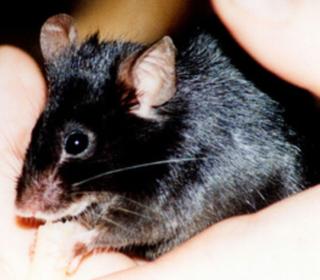Psychosis
Psychosis and Symbiosis: Microbiome and Schizophrenia
Fascinating new research links the gut and brain in sickness and health.
Posted March 31, 2019 Reviewed by Lybi Ma

Schizophrenia is a neurodegenerative disorder that affects about 1 percent of the world population and tends to strike in the prime of life. Preventing this disease could help tens of millions of families throughout the world, so finding the risk factors for early diagnosis and treatment are paramount. We know there are genetic risks that, at the moment, can't be changed (and as the disorder is polygenic, we will not find a single “schizophrenia gene”). Other major risk factors, such as prenatal infection, also can’t be changed 18-35 years later when the disease shows up. We know there are risk factors that can be addressed, such as using large amounts of high-THC marijuana in adolescence. But are there other factors that predispose people to schizophrenia that we may be able to address, such as changes in the microbiome?
We’ve known for a few years that people with schizophrenia have a different gut microbiome than healthy control populations. In a recent (amazing) paper in Science Advances, researchers categorized and transplanted the microbiomes from 63 patients with schizophrenia and 69 healthy controls into germ-free mice to see what happened.
First off, the microbiomes of everyone involved were catalogued (according to 16S rRNA sequencing, which is now falling by the wayside to total genome sequencing, but has been the standard for many years). In general, patients with schizophrenia had lower microbial diversity and differences in microbial phylum, to the point that patients with schizophrenia could be identified by their microbiome differences in this sample. These were different than the microbiota changes found in people with major depressive disorder (which could also distinguish patients with depression from healthy controls.)
Now, that’s all very interesting if one likes to catalog trillions of bacteria and fungi and other intestinal symbiotes, but what happened to the mice that were transplanted with healthy control and schizophrenic patients’ microbiomes? First off, their microbiomes did indeed reflect the microbiome composition of the transplants they received. But here’s where things get really interesting . . . as we discussed in my last blog post about the “metabolome,” the metabolic function of the mouse microbiome changed between those with healthy control bacteria and those from schizophrenic patients. In all, the output of about eight amino acids and lipid metabolites were increased in the schizophrenia microbiota recipient mice, and 25 products were decreased.
Even more striking, there were other differences in the serum and brains of the recipient mice. Glutamate, glutamine, and GABA are all similar chemicals that can be made from each other (in general) that have entirely different effects (glutamate tends to turn things on, whereas GABA tends to quiet things down and turn them off). Those mice that received the transplants from schizophrenic patients had higher levels of glutamine in the serum and hippocampus, decreased glutamate in the hippocampus, and increased GABA in the hippocampus. These difference were localized to areas of the brain particularly rich in glutamate and its metabolites (i.e., the outer shell of the brain and the hippocampus). This means that a transplant of a different microbiome led to different GABA-glutamate-glutamine neurotransmission in mouse brains. Corresponding human brain areas are related to memory, neuron repair, and executive functioning, all significantly impacted in schizophrenia.

In addition, the schizophrenia microbiome recipient mice had different behaviors than the healthy control mice, with exaggerated startle response and increased activity.
What does all this mean? Well, we really don’t know much yet. If this research pans out in humans, it’s possible that interventions involving the microbiome could attenuate acute symptoms or even improve the long-term prognosis in folks with schizophrenia. Antibiotics, microbial transplants, dietary changes, probiotics, prebiotics, and metabolomic treatments (meaning feeding people the end products of microbial metabolism, such as butyrate) are all possible study variables. Decades ago, Curt Dohan proposed that antipsychotic medications worked in part by altering the gut microbiome. Now we know that many medications other than antibiotics affect the gut microbiome.
As usual, we’ve uncovered a lot more questions than answers, but these questions lead in new and exciting directions, which I hope lead us to better ways to prevent and treat devastating major mental illness.
Copyright Emily Deans MD
blog post name help from @Asabovsobelo on twitter


